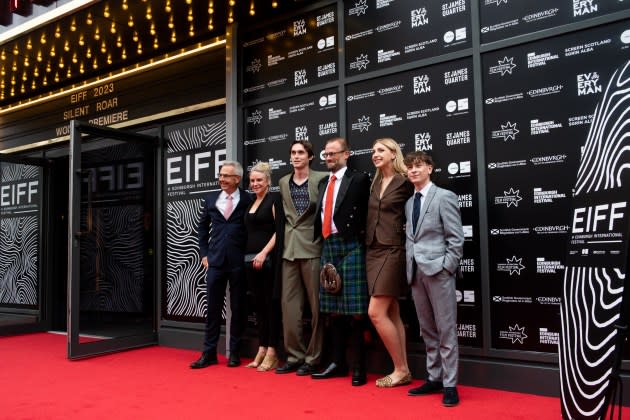Edinburgh Film Festival Returns To Sold=-Out Screenings & Competition From The City’s Fringe Events

The Edinburgh International Film Festival is back.
The Scottish festival returned Friday evening with the Scottish drama Silent Roar, the opening film of what organizers have described as a scaled-down, “special one-year iteration,” which will relaunch the fest following its brief closure last year after the collapse of its owner the Centre for the Moving Image (CMI).
More from Deadline
Execs at the CMI appointed administrators in October. At the time of administration, a statement from the CMI said a “perfect storm” of rising costs and falling admissions numbers due to the pandemic had been exacerbated by the current cost of living crisis.
The EIFF brand was later retrieved by Screen Scotland, a national funding body, and this year the Edinburgh International Festival, a wider cultural event in the Scottish capital, is facilitating film events with infrastructure such as ticketing, finance, and logistics so that it can host guests.
As part of the CMI’s closure, its two celebrated physical cinema sites, the Belmont Filmhouse in Aberdeen and Filmhouse Cinema in Edinburgh, also shut their doors. Staff members working at all three organizations were made redundant. Edinburgh Filmhouse opened in 1979 in a former church and had acted as a central hub for EIFF, where premieres could be mounted, and festival guests and attendees could congregate. This year EIFF is split between two commercial cinema chains, Vue Edinburgh Omni and Everyman Edinburgh at the St James Quarter.
Alongside the music, dance, and literature program hosted as part of the Edinburgh International Festival, EIFF is unraveling amid the city’s popular fringe theatre festival, and Edinburgh’s annual industry-focused TV festival opens on Tuesday. In 2008, EIFF organizers moved the festival to June in an attempt to avoid clashing with fringe, which takes over the city with traveling comedians and theatre troops setting up shop across local venues, as well as Venice, Toronto, London Film Festival, which dominate the fall season, and the conflict is apparent on the ground.
“We didn’t know there was a film festival on,” a group of fringe employees told Deadline.
However, despite the rebrand, location changes, and local competition, EIFF appears to have maintained a core audience, with almost every event sold out across its five-day program. This includes not only public film screenings, but also filmmaker talks, panels, and symposiums.
“The appetite for good cinema is still strong in the city,” one festival organizer told Deadline on the ground.
Christian Petzold’s Afire and Celine Song’s Past Lives are among the titles set to screen at the fest. The full lineup includes 24 feature films, five retrospective titles, and a five pic short film program. Five feature films will be presented as World Premieres. While the festival program is smaller than in previous years, it still carries a lot of heft with a large presence of arthouse work and projects by artist-filmmakers such as Ungentle, a 37-minute gallery piece by Huw Lemmey and Onyeka Igwe. Elsewhere, the festival will host an American independent cinema retrospective featuring four films made by “rebellious filmmaking” voices in the 1980s and 1990s. The festival will also host a retrospective screening of Shane Meadows’ Dead Man’s Shoes, which had its World Premiere at EIFF in 2004.
The festival ends August 23 with Babak Jalali’s well-received Sundance pic Fremont as the closing-night film.
Best of Deadline
TV Cancellations Photo Gallery: Series Ending In 2023 & Beyond
2023 Premiere Dates For New & Returning Series On Broadcast, Cable & Streaming
SAG-AFTRA Interim Agreements: Full List Of Movies And TV Series
Sign up for Deadline's Newsletter. For the latest news, follow us on Facebook, Twitter, and Instagram.

 Yahoo News
Yahoo News 